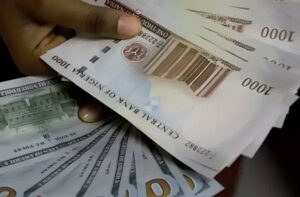
The Nigerian naira continued its downward trajectory on the parallel market, depreciating to ₦1,620 per US dollar as of Monday, amid sustained demand pressure and limited dollar supply.
Currency traders across major cities, including Lagos and Abuja, confirmed the new rate, attributing the sharp depreciation to an increase in speculative trading and a widening gap between official and unofficial exchange rates.
Market analysts suggest that the persistent scarcity of foreign exchange, particularly from the Central Bank of Nigeria (CBN), has continued to drive demand to the black market, where rates remain volatile and significantly higher.
“This depreciation reflects both the ongoing FX supply challenges and the lack of confidence in the formal window,” one trader in Lagos told Madmo Newsroom. “Importers and businesses are left with no choice but to seek dollars from the parallel market, pushing up rates.”
The official Investors’ & Exporters’ (I&E) window, however, maintained a significantly lower exchange rate, intensifying calls for urgent interventions to unify the market and stabilize the currency.
Economic observers warn that the sustained pressure on the naira could lead to further inflation, especially on imported goods, and worsen the cost-of-living crisis currently facing Nigerians.
The CBN has yet to issue a formal response to the latest development.




